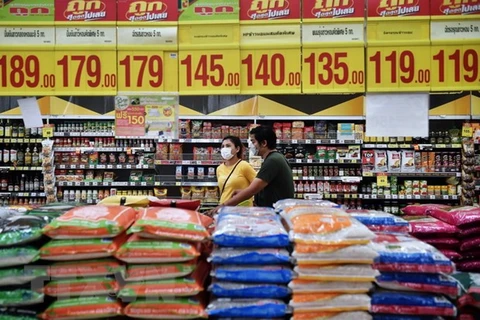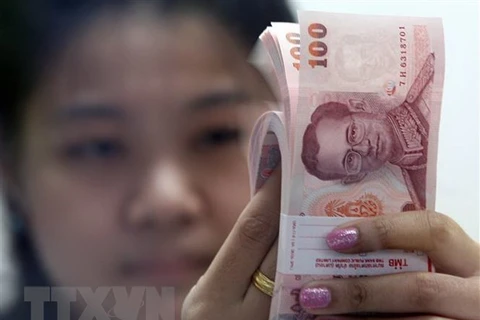Hanoi (VNA) – The Government of Thailand has approved a plan for tertiary education development with an aim to become a developed country by 2037.
The World Bank defines a high-income economy as a nation with a gross national income (GNI) per capita of 12,696 USDD or more in 2020. Thailand's GNI per capita in 2021 was 7,260 USD, according to World Bank data.
In this context, the Thai cabinet has passed a number of draft policies and strategies to serve as development frameworks for higher education, science, research, and innovation between 2023 and 2027, which were proposed by the Ministry of Higher Education, Science, Research and Innovation.
Thai Government Deputy Spokeswoman Rachada Dhnadirek was quoted by local media as saying that the first policy framework is aimed at developing people's skills and promoting the country's competitiveness and sustainable development so the nation can adjust to constant global changes.
The policy framework comprises four strategies, she said, adding that one involves economic development by promoting a value-driven and creative economy to boost competitiveness and self-reliance. The second strategy is to promote sustainable development so the country can deal with challenges and adjust to global dynamism, with key action plans including creating a low-carbon society, while the third is on the advancement in science, technology, research, and innovation with key action plans, including the targeted S-curve industries, and the fourth is to develop human resources and educational and research institutes as a basis to propel the economy, she stated.
The second draft policy framework is aimed at developing human resources, comprising three strategies, she said.
The first strategy involves capacity-building by providing education to support the life-long learning process and upgrading the quality of education and creating high-calibre personnel, while the second involves building a research ecosystem through innovative research and technology transfer through developing infrastructure or conductive factors, and the third is to push for the transformation of higher education with good governance practices, developing higher educational institutes based on their own characteristics, promoting financial security in the higher education system and pushing for digital higher education.
There are also three plans for urgent implementation within three years, such as developing high-calibre personnel to respond to BCG development, and promoting local community enterprises, the grassroots economy, SMEs, and startups, she added./.
The World Bank defines a high-income economy as a nation with a gross national income (GNI) per capita of 12,696 USDD or more in 2020. Thailand's GNI per capita in 2021 was 7,260 USD, according to World Bank data.
In this context, the Thai cabinet has passed a number of draft policies and strategies to serve as development frameworks for higher education, science, research, and innovation between 2023 and 2027, which were proposed by the Ministry of Higher Education, Science, Research and Innovation.
Thai Government Deputy Spokeswoman Rachada Dhnadirek was quoted by local media as saying that the first policy framework is aimed at developing people's skills and promoting the country's competitiveness and sustainable development so the nation can adjust to constant global changes.
The policy framework comprises four strategies, she said, adding that one involves economic development by promoting a value-driven and creative economy to boost competitiveness and self-reliance. The second strategy is to promote sustainable development so the country can deal with challenges and adjust to global dynamism, with key action plans including creating a low-carbon society, while the third is on the advancement in science, technology, research, and innovation with key action plans, including the targeted S-curve industries, and the fourth is to develop human resources and educational and research institutes as a basis to propel the economy, she stated.
The second draft policy framework is aimed at developing human resources, comprising three strategies, she said.
The first strategy involves capacity-building by providing education to support the life-long learning process and upgrading the quality of education and creating high-calibre personnel, while the second involves building a research ecosystem through innovative research and technology transfer through developing infrastructure or conductive factors, and the third is to push for the transformation of higher education with good governance practices, developing higher educational institutes based on their own characteristics, promoting financial security in the higher education system and pushing for digital higher education.
There are also three plans for urgent implementation within three years, such as developing high-calibre personnel to respond to BCG development, and promoting local community enterprises, the grassroots economy, SMEs, and startups, she added./.
VNA























